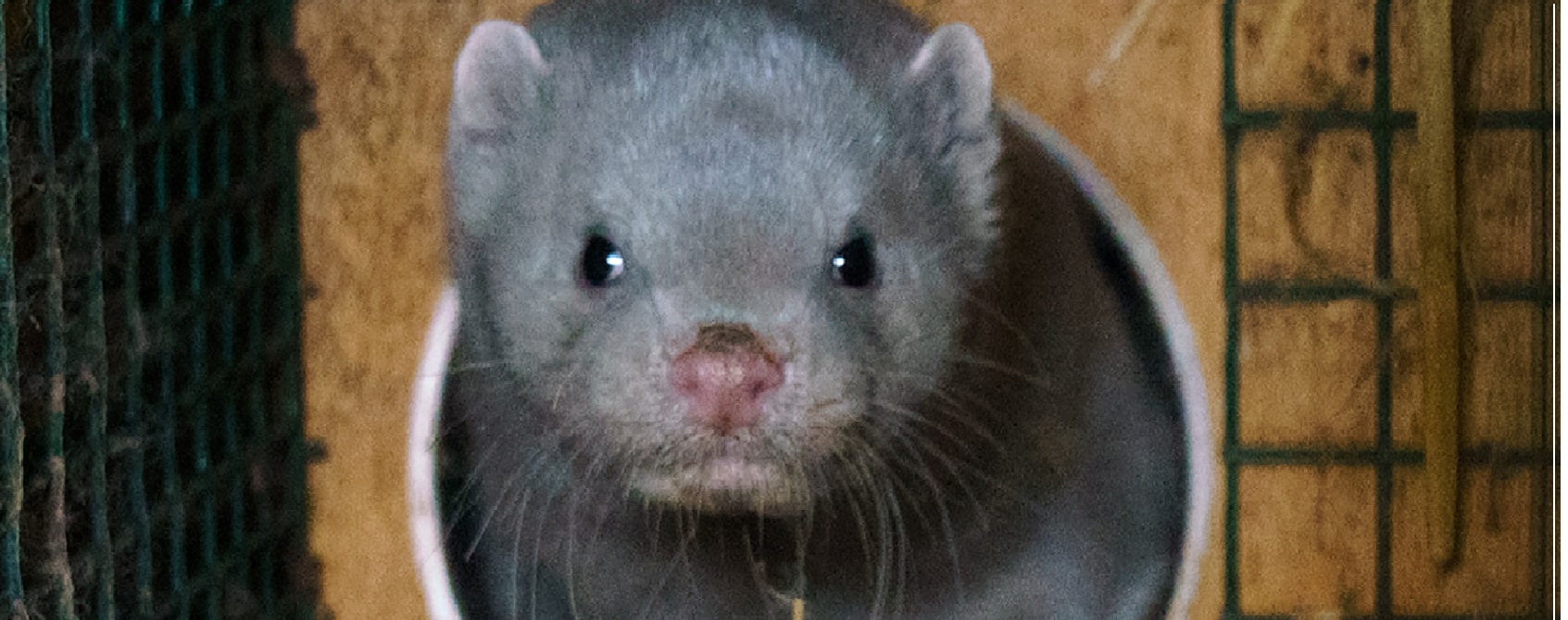By Sara Amundson and Kitty Block
Mink on two farms in Utah have tested positive for the coronavirus. The U.S. Department of Agriculture reported today that “unusually large” numbers of animals had died at the two farms, which also reported positive cases of COVID-19, the disease caused by the virus, in people who had contact with the mink. These are the first confirmed cases of the virus in mink on fur farms in the United States and they intensify the urgency around closing down these operations, which have already emerged as hotspots for the pandemic in several countries.
A policy report we released in May recommended a ban on the trade in animals like foxes, raccoon dogs and mink who are used for fur and are common transmitters of zoonotic diseases, in order to control the spread of the coronavirus and prevent future outbreaks. We have previously reported on outbreaks on 33 mink farms in the Netherlands, three in Denmark and one in Spain. More than 1.5 million mink, mostly newborn pups, have already been gassed to death in these countries to contain the spread of the virus.
Despite these culls, experts believe the farms remain potential reservoirs for the coronavirus. After fur farm workers in the Netherlands tested positive for the virus, the Dutch government said it is “very likely” they had contracted the virus from mink. The Netherlands is now considering closing down all fur farms in the country ahead of a 2024 deadline it had previously set for ending all fur production on its soil.
We need a similar discussion—and action—here, in the United States, where fur farming is still rampant despite declining consumer interest. There are more than 200 fur farms in 17 U.S. states, that together produced three million pelts last year. Utah produced more than 700,000 of these pelts in 2018 in its approximately 55 mink fur farms. The state was the nation’s second largest producer of mink pelts that year, behind Wisconsin.
Recent HSI investigations have exposed the terrible cruelty of fur farms the world over, where animals are bred and confined in small cages, bludgeoned to death and even, sometimes, skinned alive. Awareness about these cruel practices has led to declining consumer interest in fur and has prompted a number of major fashion houses and retailers to work with us to announce fur-free policies in recent years.
More than a dozen European countries now ban fur production, and in 2019 California became the first U.S. state to ban fur sales. At least two U.S. cities, Wellesley, Massachusetts; and Minneapolis, and two states, Rhode Island and Hawaii, have introduced legislation similar to the California law. There is no question that the fur industry is in rapid decline. The pandemic adds one more obvious reason for hastening its demise, in the United States and around the world.
Kitty Block is President and CEO of the Humane Society of the United States.




